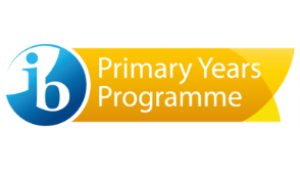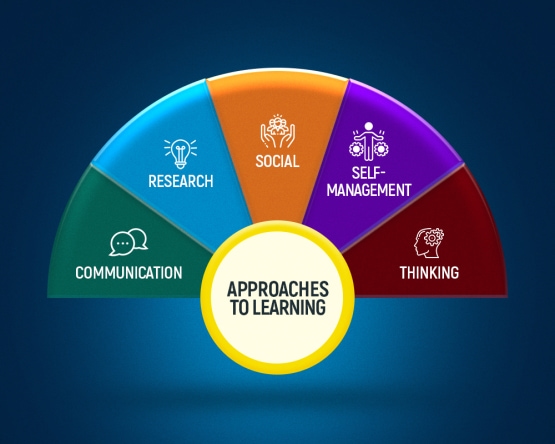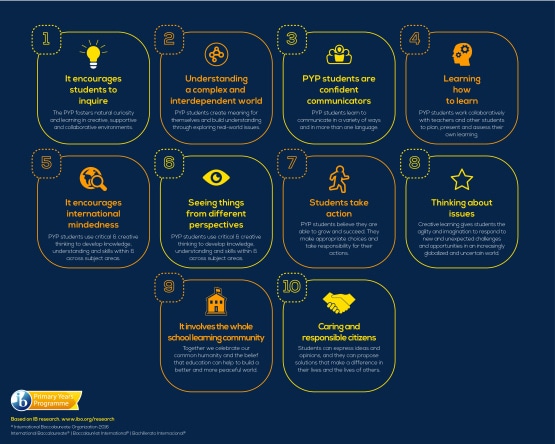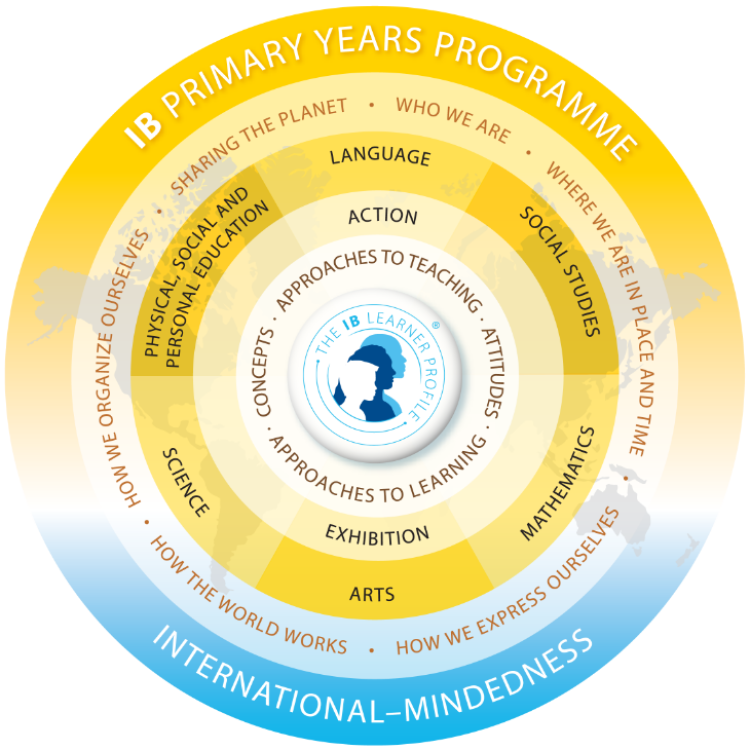PYP - Primary Years Program
WHAT IS THE PYP?
The International Baccalaureate® (IB) Primary Years Program (PYP) balances the acquisition of significant and relevant knowledge and skills, the development of conceptual understanding, the formation of personal, positive attitudes and the capacity to take responsible actions.
- Addresses students’ academic needs and their social and emotional well-being
- Encourages students to develop independence and to take responsibility for their own learning
- Supports students’ effort to gain understanding of the world and to function effectively within it
- Helps students to establish personal values as a foundation on which international-mindedness will flourish
PYP (Primary Years Program)
Designed for students aged 3 to 12 (typically covering grades K-5 or K-6), the PYP focuses on the development of the whole child and emphasizes inquiry-based learning. It provides a framework for integrating subjects and fostering inquiry, conceptual understanding, and transdisciplinary skills.
- The PYP is organized around six transdisciplinary themes that provide a framework for inquiry across subject areas. These themes are explored through a combination of subject-specific knowledge and skills, conceptual understanding, and real-world connections.
- Assessment in the PYP focuses on the process of inquiry, students' conceptual understanding, and the development of transdisciplinary skills. Assessment strategies include observation, self-assessment, teacher assessment, and performance-based tasks.
- The PYP emphasizes the development of key skills, known as Approaches to Learning (ATL), which include skills such as thinking, communication, social, research, and self-management skills. These skills are integrated into the curriculum and are designed to support lifelong learning.
As of September 2023,
There are 2275 schools offering the PYP, in 127 different countries worldwide.
PYP prepares students for the intellectual challenges of further education and their future careers, focusing on the development of the whole child as an inquirer, both in the classroom and in the world outside
SIX TRANS-DISCIPLINARY THEMES OF THE PYP:
- Who we are
- How we express ourselves
- How we organize ourselves
- Where we are in place and time
- How the world works
- Sharing the planet
ESSENTIAL ELEMENTS IN THE PYP
KNOWLEDGE, which is both disciplinary, represented by traditional subject areas (language, maths, science, social studies, arts, PSPE) and trans-disciplinary
CONCEPTS, which students explore through structured inquiry in order to develop coherent, in-depth understanding, and which have relevance both within and beyond subject areas
SKILLS, which are the broad capabilities students develop and apply during learning and in life beyond the classroom
ACTION, which is an expectation in the PYP that successful inquiry leads to responsible, thoughtful and appropriate action.
WHAT THE PYP OFFERS STUDENTS
PYP schools develop students’ academic, social and emotional wellbeing, focusing on international-mindedness and strong personal values. The PYP nurtures independent learning skills, encouraging every student to take responsibility for their learning.
The program incorporates local and global issues into the curriculum, asking students to look at six related, transdisciplinary themes and to consider the links between them. The themes include ‘who we are’, ‘where we are in place and time’ and ‘how the world works’.
The PYP delivers excellent results for students aged 3 to 12. For example:
- PYP students outperformed non-IB students in mathematics, reading and writing in a global International Schools’ Assessment study that ran from 2009-2011
- A 2014 national study in Australia found that students in the PYP perform better than the national average in nationwide science tests








